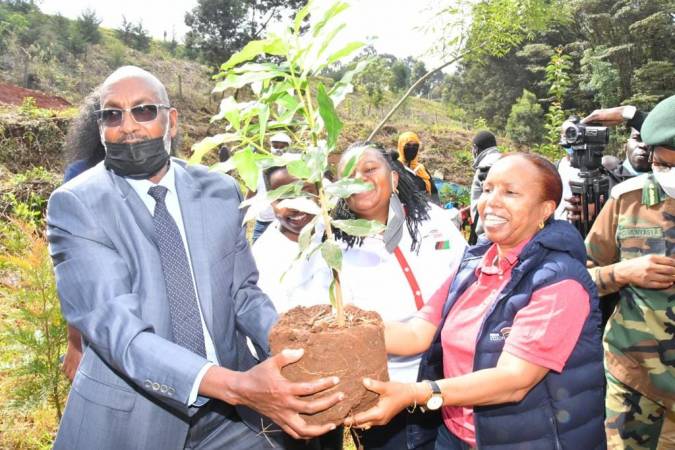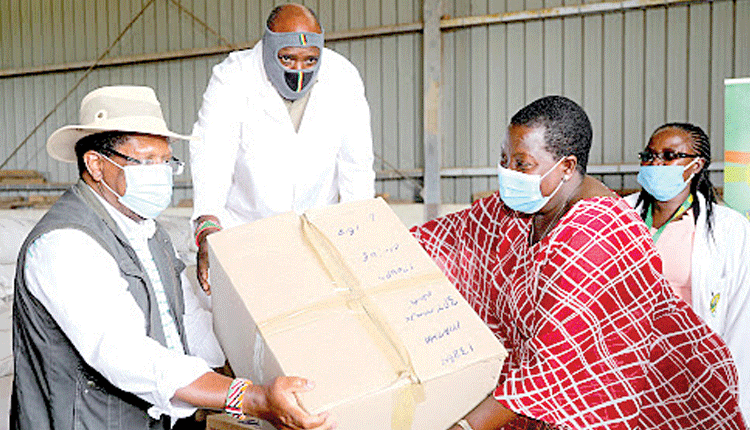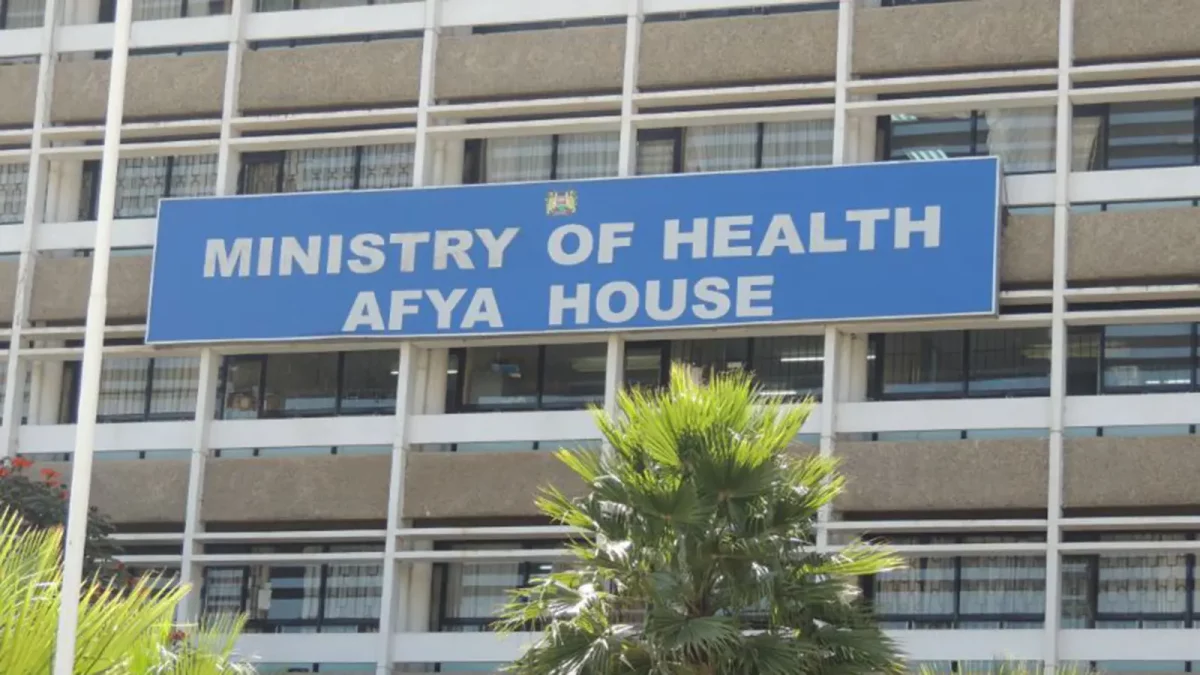Dump waste on wetlands at own risk, warns Tobiko

Environment and Forestry Cabinet Secretary Keriako Tobiko has warned apartments and industry owners and the general public against using wetlands and rivers as garbage, effluent and raw waste dumping grounds.
He said that it is unfortunate that unscrupulous Kenyans are using wetlands as dumping grounds for industrial effluents, raw sewage and agricultural runoff thereby contaminating the water and the ecosystem warning those found flouting the rules will be arrested and prosecuted.
The CS also decried what he termed as rampant encroachment and mismanagement of wetlands in the country.
He said that there is need to invest in human and political capital to save existing wetlands from the two vices and restore those already degraded.
Concerted efforts
Tobiko said that the challenges facing wetlands arise from the fact that they are no specific defined conservation laws in the country.
“There’s need to incorporate wetlands conservation into development projects and plans,” said the CS in a speech read on his behalf by his CAS Mohammed Elmi during celebrations to mark the World Wetlands Day at Ondiri Swamp in Kikuyu, Kiambu county.
The CS said wetlands conservation calls for comprehensive and integrated concerted efforts to avert further depletion of the same.
National Environmental Complaints Committee Secretary Dr John Chumo said wetlands are not wastelands and are of great significance to mankind and ecology and the government is fully committed in containing depletion of wetlands particularly Ondiri swamp which is a water tower.
“A major crackdown on those who have illegally encroached wetlands, riparian land, those harvesting water illegally, those emptying effluents and raw sewage in the river will conducted soon,” he warned.
Kiambu Governor James Nyoro said wetlands have immense socio-economic and ecological importance as they are directly linked to livelihoods and food security besides being crucial for the survival of natural biodiversity.
However, he regretted that wetlands are facing threats from the apparent rapid degrading ecosystems occasioned by habitat destruction, garbage dumping, encroachment and water pollution due to industrial effluents and fertilizer/herbicides discharged by farmers.
The Ondiri wetland has since been transformed into attractive aquatic ecosystem with special habitats and unchallenged biodiversity, thanks to the involvement of the civil society in it’s conservation specifically Friends of Ondiri lobby group.
Meanwhile, governments have been urged to tighten laws that protect wetlands to stem rising loss of lives and property because of floods.
In a statement, Pan African Climate Justice Alliance (PACJA) executive director Dr Mithika Mwenda said encroachment of the wetlands has led to the suffering of communities experiencing climate crisis in form of flooded homes, roads, farms and loss of crops when slight rains are experienced in society.
Soil erosion
Over the last few days, close to 200,000 people in southern Africa countries of Malawi, Mozambique, Zimbabwe and Zambia have been displaced or killed by floods thanks to Tropical Storm Ana.
“Wetlands have economic potential, first, besides mitigating the negative impacts of flooding, scarcity of water and soil erosion, wetlands also have wider environmental and economic benefits such as hubs for eco-tourism,” he said.
According to the UN Agency on Environment, wetlands are biodiversity hotspots, carbon sinks and source of livelihoods, with potential to regionally increase food security by sustainably increasing food production which contribute directly and indirectly the manifold socio-economic benefits.















